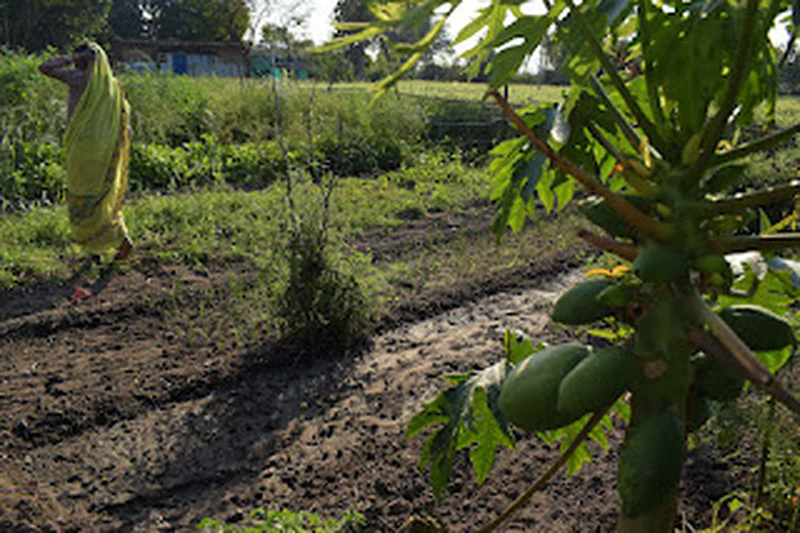The National Coalition for Natural Farming (NCNF) is a movement that promotes sustainable and eco-friendly agricultural practices in India. It was launched in 2020 to reduce the use of chemical fertilizers and pesticides in farming and promote natural and organic methods. The NCNF is a collaborative effort between the government, farmers, and civil society organizations to promote natural farming practices and improve the health and productivity of soils, as well as the livelihoods of farmers. We have 6 active state coalitions comprised of various grassroots NGOs and farmer collectives promoting the adoption of agroecology-based practices among rural communities.
Guiding Principles of Natural Farming
*Developing agro-ecologically appropriate approaches and methods of farming tuned to changing climate regimes and rainfall patterns.
*Understanding farming as a whole system
*Progressive reduction and phasing out (at the appropriate pace) of synthetic agri-chemicals such as fertilisers, pesticides, herbicides, and fungicides. Members of the Coalition will not use GM seeds in farming. The Coalition will also facilitate the reduction and phasing out (at a suitable pace) of GM seeds for farmers who are already using them.
*Promoting agro-ecology-specific crop diversification and a steady movement away from mono-cultural systems of farming, by incorporating a locally appropriate mix of nutri-cereals, pulses, oilseeds, fruits, and vegetables.
*Adoption of a farming systems approach that integrates a diversity of appropriate livestock and tree resources in an optimal manner
*Integrating water use efficiency, water harvesting, and water-stress resilience through various location-appropriate practices. Addressing the twin syndemic of malnutrition and diabetes afflicting India, especially its children.

Pramel Gupta, National Anchor (NCNF), says, “Current Initiatives- Building multi-stakeholder coalitions at the six-state level, enhancing partners’ capacities, developing Natural Farming champions in collaborations with different institutions, facilitating evidence and narratives through participatory research, and engaging the government at on policy process, programme design, and CSO engagement on scheme facilitations.“ Future goals are to transform 5 million farmers under natural farming systems. Develop large natural farming champions at cader village level across the country and enablers to strengthen the Natural farming movement.
Manas Srivastava, Capacity Building & Gender (NCNF) throws light on the Role of Women Farmers in Agriculture. “Agriculture continues to be the primary source of livelihood for a large number of people in India. It accounts for around 19 percent of the GDP, and about two-thirds of the population depends on the sector. It is not only a source of livelihood and food security for a large population of India but also has a special significance for low-income, and vulnerable sections.”
Women form the backbone of agriculture in India with their significant presence in the sector. The nature and extent of women’s involvement in agriculture varies significantly from region to region. But regardless of these variations, women are actively involved in various agricultural activities.
As per Census 2011, out of the total female main workers, 55 percent were agricultural labourers, and 24 percent were cultivators. However, as per the Agriculture Census (2015-16), only 13.96 percent of the operational holdings were held by women, which reflects the gender disparity in operational holdings of women in agriculture.
Despite their significant participation in Agriculture, there is no available data on women’s land ownership in the public domain.
As per the Annual Periodic Labour Force Survey (PLFS) Report 2021-22, agriculture had the highest estimated percentage distribution of female workers, i.e. 62.9 % With growing urban migration by men, the agriculture sector is being managed by women. Women contribute to agriculture through multiple roles as cultivators, entrepreneurs, and labourers.

Common Meaningful Programme
This CMP is guided by the following principles and practices:
- Developing agro-ecologically appropriate approaches and methods of farming tuned to changing climate regimes and rainfall patterns.
- Understanding farming as a whole system which, *seeks to leverage biological synergies amongst numerous plant and animal species, from soil fungi to trees, from soil bacteria or worms to livestock, etc
*activates the entire soil food web to trigger the exchange process between plants, soil microbes and soil nutrients
*builds soil humus and soil fertility on a continuous basis, as minerals that were otherwise ‘locked’, are made bio-available to plants
*Improves soil health through biomass recycling and management practices that enhance the 3-Ms in soil (organic matter, moisture, and micro-organisms), controls pests and diseases by designing and managing the whole farm system to achieve health, diversity, and vitality in the soils and crops, which encourages natural growth and a balanced farm ecosystem without the use of herbicies, fungicides, and synthetic pesticides.
- Progressive reduction and phasing out (at the appropriate pace) of synthetic agri-chemicals such as fertilisers, pesticides, herbicides, and fungicides.
- Members of the Coalition will not use GM seeds in farming. The Coalition will also facilitate reduction and phasing out (at a suitable pace) of GM seeds for farmers who are already using them.
- Promoting agro-ecology-specific crop diversification and a steady movement away from mono-cultural systems of farming, by incorporating a locally appropriate mix of nutri-cereals, pulses, oilseeds, fruits, and vegetables.
- Adoption of a farming systems approach that integrates a diversity of appropriate livestock and tree resources in an optimal manner.
- Integrating water use efficiency, water harvesting and water-stress resilience through various location-appropriate practices.
- Addressing the twin syndemic of malnutrition and diabetes afflicting India, especially its children.





